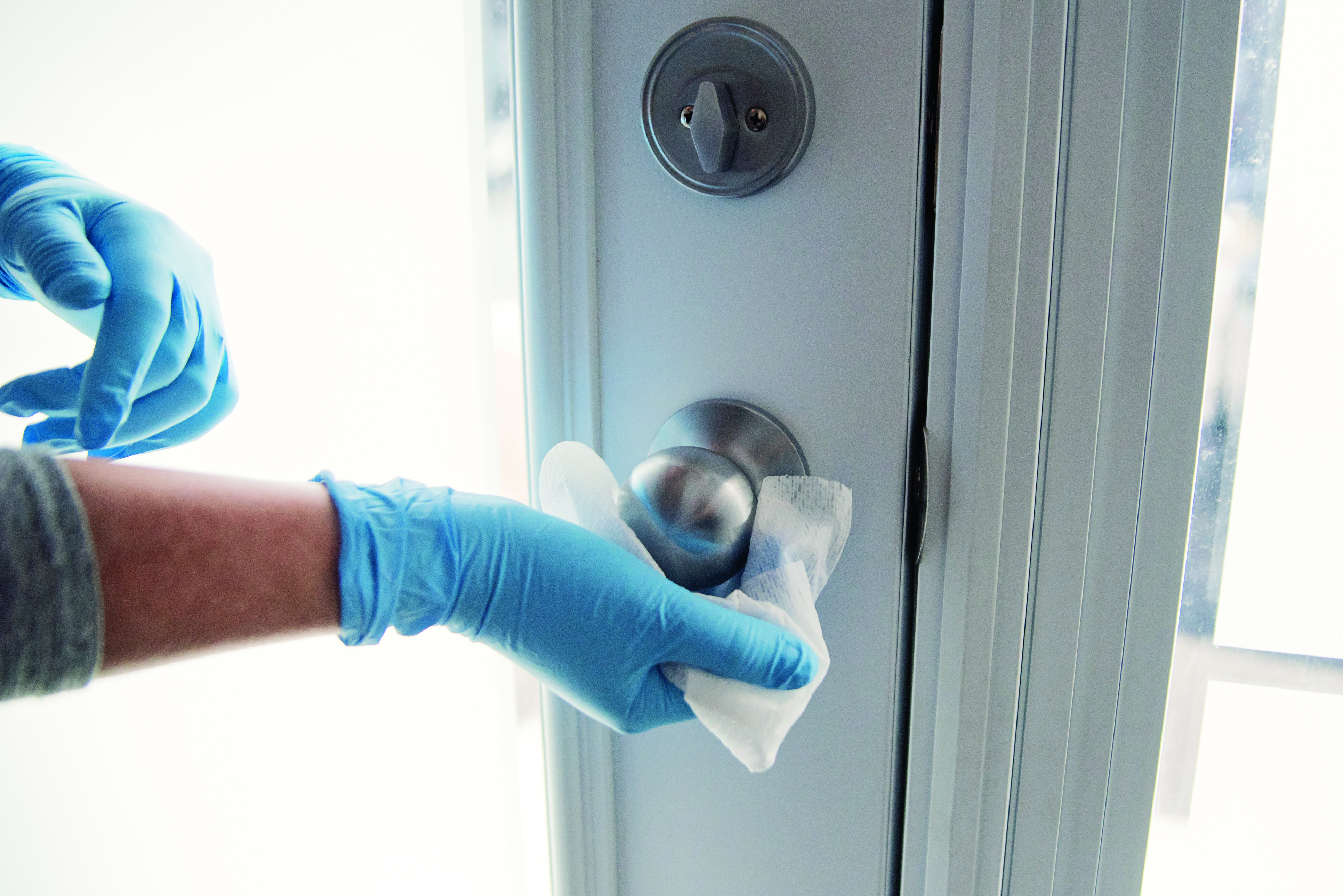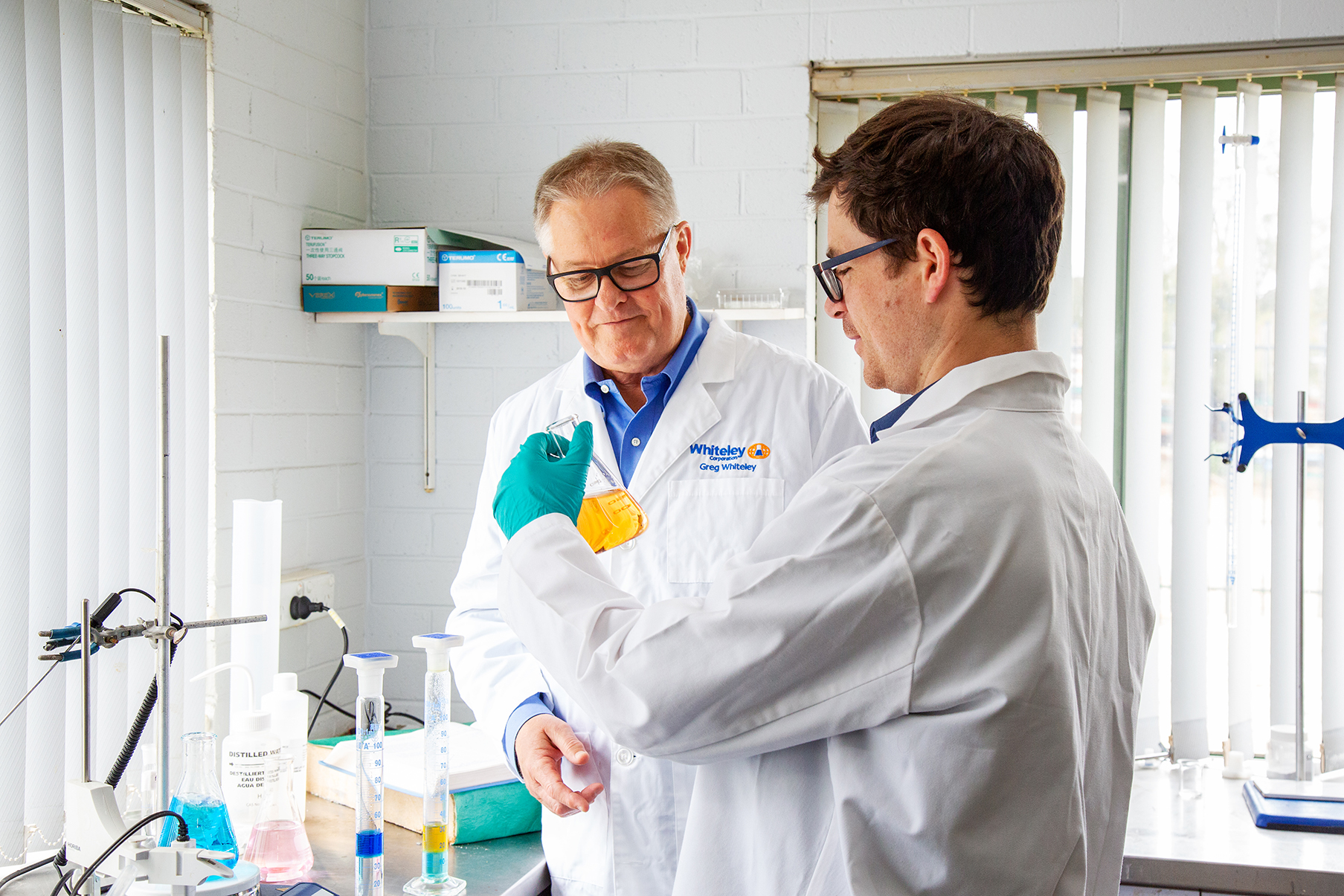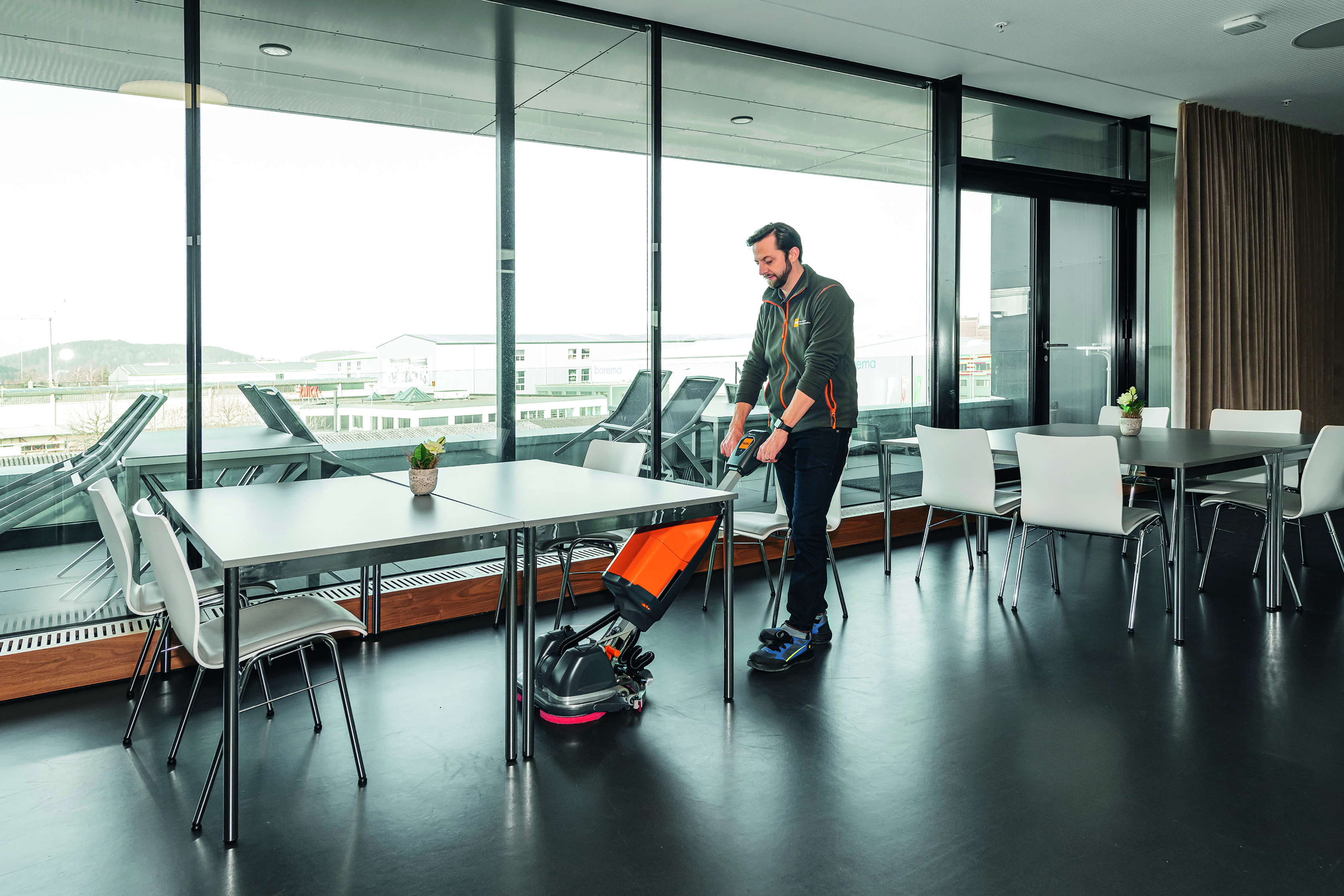
With the flu season upon us, respiratory virus rates are rising including rhinovirus, respiratory syncytial virus (RSV), influenza, adenovirus, and coronaviruses (including COVID-19).
One of the most important questions concerning respiratory viruses is understanding how they are transmitted between people.
There are three transmission routes of concern: droplet, airborne and contact. By understanding how they are spread is imperative to providing measures to interrupt the chain of infection.
As a wide range of pathogens can be transmitted via surfaces including those deposited via respiratory droplets, a focus on surface cleaning and disinfection remains critical for any public facility.
As testing proved early during the pandemic the COVID-19 virus remained active on plastic surfaces up to three days. This strongly suggests a transmission risk associated with surfaces for up to several days with the highest risk immediately after the surface is contaminated and a declining risk over time.
Another important factor is people who spread pathogens are not always symptomatic. In the case of COVID-19, it is estimated that <50 per cent of transmission occurs in asymptomatic or pre-symptomatic people. Studies of other respiratory viruses show that this can occur for influenza and other respiratory viruses.
A more conservative approach is to assume that some portion of the people using a public facility are transmitting pathogens and implement control measures to address this risk rather than relying on observation of visible symptoms to trigger using control measures.
Given the wide range of pathogens that can be transmitted via contaminated surfaces, use of frequent surface disinfection as part of interventions to reduce the risk of infection is a sensible precaution.
Factors when choosing a surface disinfectant
When it comes to surface disinfection, there are various product chemistries and tools to deliver the required disinfection on clean or dirty surfaces coupled with the required contact time.
For added assurance when considering which product to use for disinfecting it is preferable to use disinfectants that are listed on the Australian Register of Therapeutic Goods (ARTG) for legal supply in Australia. Look for products listed to kill viruses including, H1N1 (Influenza) Rhinovirus (common cold), Norovirus & Rotavirus (Gastroenteritis) and SARS-CoV-2 (COVID-19).
Also look for a one-step disinfectant with a shorter contact time. The shorter the contact time – 15 seconds or less – the better for inactivating viruses.
Also ensure you choose hospital grade disinfectants (such as Oxivir® Excel Wipes from Diversey with a 15 second kill time). Cleaning and disinfecting in one step will accomplish your goal without sacrificing performance and a short contact time helps ensure the product is used in compliance.
Look for a product range that offers solutions in wipe, concentrate and ready-to-use formats to meet a variety of needs. Not all product forms are appropriate for all situations. Having flexibility in how the product is applied is important. The best products are gentle on skin and surfaces while tough on pathogens.
Products with technologies like Accelerated Hydrogen Peroxide (AHP) are markedly safer for people and surfaces while still being tough on pathogens.
These disinfectants are also more efficient than the existing slower Quat-based (quaternary ammonium compounds) products, or those formulated on Hypochlorite (Chlorine) or Peracetic acid. AHP achieves the balance of maximising potency while minimising toxicity, breaking down into water and oxygen just minutes after use.
To reduce pathways for the spread of viruses this flu season, building service contractors and facility managers should pick a disinfectant that is fast-acting, effective, and less likely to cause irritation and surface damage.
If you have questions about any aspect of Diversey Australia’s hygiene programs, services, products or infection prevention visit our website at diversey.com.au or call 1800 647 779 to speak to our friendly Customer Service to and find out more.






Gary Oskay on: Industry Leaders Forum: Wayne Hill, CEO, RapidClean Group
John Ford on: Industry Leaders Forum: Joe Camilleri, Managing Director, Central Cleaning Supplies
Jasmine Soh on: Empowering the Oceania Cleaning and Hygiene Industry: INCLEAN Unveils Its Unified Magazine